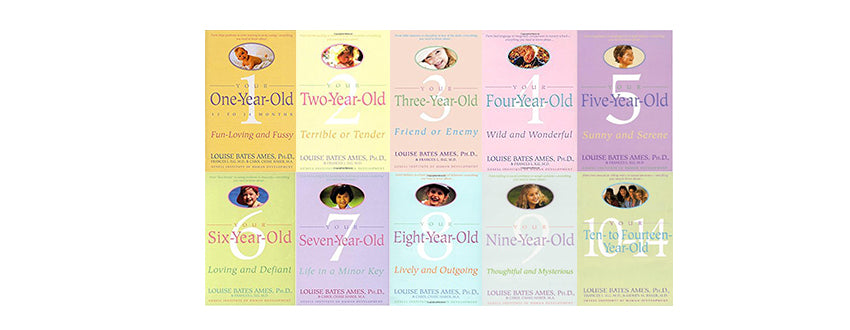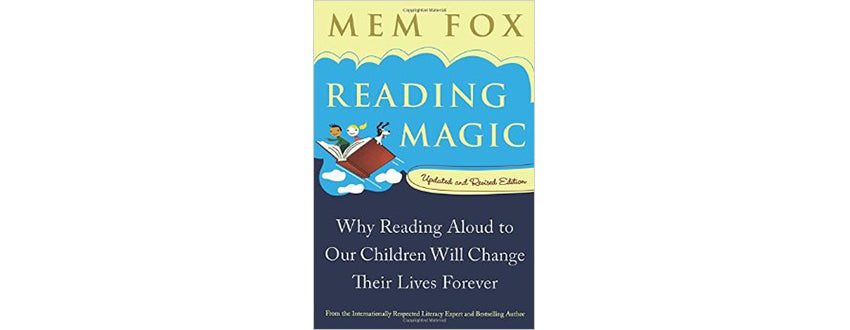We talked with Emily Holt, Lower Division Director of Manhattan’s prestigious St. Hilda’s & St. Hugh’s School, about the best parenting books.
Some of her favorite resources are listed below and include advice ranging from the challenges of parenting in the Digital Age; how to allay anxiety and build resilience; how we can better connect and communicate with our kids; and more.
Loving and Defiant (series), by Louise Bates Ames, Ph.D. and Frances Ilg, M.D.
One of the most interesting take-aways from this Loving and Defiant series is the unbelievable sense of timelessness in parenting. Yes, the world is different in 2017 than it was when these books were first published (back in the 1970’s!), but the basic tenants of how to parent, effectively communicate, discipline, and praise your children remain largely unchanged.
Each book in this series follows the same format, and each is slim and quick-to-read with lots of helpful content. Parents are a busy group, and this series breaks each book down into segments that make it very easy to pinpoint specific issues and find applicable solutions. Topics range from parent-child relations to recognizing stages of equilibrium to establishing routines and structures.
Sometimes, the choices we make that reflect our 2017 sensibilities could benefit from a thoughtful look back into the world of the Loving and Defiant series. It is interesting to pause and consider how the brains and attitudes of infants, toddlers, children and adolescents might not be all that different today than they were 50 years ago.
How to Talk So Kids Will Listen & Listen So Kids Will Talk, by Adele Faber and Elaine Mazlish

A best-selling classic recently updated with a new foreword, this book is chock-full of great step-by-step tips and take-aways (there are even some excellent and fridge-worthy cartoons). The authors remind parents that they are not alone and, in a very down-to-earth, sensible way offer excellent alternatives to yelling, nagging, threatening, and criticizing. Imagine that - a life with your child(ren) that revolves less around negativity and centers more on what we all would benefit from: positive communication and healthier senses of self. When you talk, I listen and hear. And when I talk, you listen and hear. Ahhhh, do you hear that? The sounds of getting along and of knowing one another better.
The book is thick, but quick to page through and very user-friendly. The authors structure their book thoughtfully - providing many solid, real-life examples and situations. For example, make correcting behavior about the behavior, and not about the child. Instead of “Get your homework! You always forget it.” Just say, “Homework needs to go to school with you,” or “Homework!”
The fundamental ideas presented are simple and effective - and truly could be applied to people of all ages. Treat others with respect, do not deny others’ emotions, state the facts clearly and fairly, and keep front of mind how powerful and important it is to listen more and better and stop talking to and at.
The Opposite of Worry: The Playful Parenting Approach to Childhood Anxieties and Fears, by Lawrence J. Cohen, Ph.D.

Anxiety is a topic familiar to most of us. Dr. Lawrence Cohen’s, The Opposite of Worry, provides an overview of what anxiety is, where it comes from, and different ways to approach it. As the title suggests, the end-game is to help your child arrive at a place that is the opposite of worry through effective strategies centered around fun, play and empathy. Intended for children ages 3 - 15, the book offers useful anecdotes and several anti-anxiety games.
Dr. Cohen provides end-of-chapter summaries from which tidbits are easy to pull and reference. He details what sources of anxiety might be and offers helpful tips on how to handle them. These include empathy, validation, reassurance, relaxation, along with playful games and ways to help pull a child out of the anxious-state and discusses the power of “what if” versus “what is.” By empowering the child through strategies and game-playing, anxiety and worry are more easily managed. Techniques are given for the more garden-variety worry to the more acute form of anxiety, along with principles for readers to follow and a very useful prescriptive summary. Dr. Cohen also includes a list of comments and a “narrative” that can be used to validate your child and ease worried feelings.
The Big Disconnect: Protecting Childhood and Family Relationships in the Digital Age, by Catherine Steiner-Adair, Ed.D.

Whether we like it or not, we are living in the Digital Age. And with that comes a whole new set of issues surrounding parenting. Catherine Steiner-Adair wisely points out: it is our role as parents to be aware, to work within these new parameters and realities, and to make conscious decisions about how to best deal with it. Technology, like everything, is neither all good nor all bad. But it is how we relate to it and use it that will make all of the difference.
Gone are the Norman Rockwell tableaus. And parents need to adopt new ways to create meaningful connections with their children. Extrapolating from this point, our children also need to learn how to meaningfully connect with their peers, parents and others.
So what do you do? Do you ban technology? Probably not. You learn to live with it. Consciously and with a plan in place. And this is exactly what Catherine Steiner-Adair’s excellent book helps us understand. We often use our phones to hide behind, to “look busy” so we don’t have to chat or make small talk with others near us. We rarely sit in silence and just look out a window. There are too many quick and easy - reflexive - distractions at our fingertips. We need to find ways to connect, target time during the day to be tech-free and “together.”
Hugely relevant and told with a very easy-to-read narrative voice, The Big Disconnect offers excellent insights, sometimes shocking revelations, and most of all a strong call to action: make the time to reconnect with your family. There is power in being intentional, looking for — and finding! — new ways to connect.
Raising Resilient Children: Fostering Strength, Hope and Optimism in Your Child, by Robert Brooks, Ph.D. and Sam Goldstein, Ph.D.

Resilience is key. But how do we foster this in our kids?
Drs. Brooks and Goldestein provide 10 essential parenting behaviors (“guideposts”) for nurturing resilience in kids, and posit that a child’s resilience grows its deepest roots in the home, nurtured by parents who incorporate empathy, practical optimism, respect, unconditional love, and keen listening skills - and the patience to administer these tenants every day.
Included are a caseload of anecdotes from the authors own clients’ histories — many from well-meaning parents who say and do counterproductive things. And then they chase these stories (that may just feel a little too familiar!) with a treasury of suggestions for righting these wrongs, tips on teaching and modeling empathy, and ways to rewire our communication with our kids and turn them from negative scripts into positive exchanges.
Grit. Resilience. These are certainly buzz-words for our times. And this book offers strategies on how to foster these in our own children. An excellent resource indeed.
Reading Magic: Why Reading Aloud to Our Children Will Change Their Lives Forever, by Mem Fox

We all know that feeling when we see a cover of a beloved picture book or hear a familiar phrase that reminds us of a favorite childhood story. We are flooded with memories, either of reading it to our own children or having it read to us when we were little. But take that feeling and stretch it out even more, apply that amazing sense of connectedness, of opening up of worlds, of bringing the reader and the listener together in this wonderfully unique way… and then you have a sense of the power and import of what reading aloud will foster.
Beloved children’s book author and internationally renown literacy expert, Mem Fox explains why and how reading aloud to children - of all ages - can be so positive and transformative. She offers guidance on defining and choosing good books and even includes a list of twenty of her favorite books to read aloud. This book does more than just espouse the virtues of reading aloud (of which there are many!), it offers prescriptive advice on how to get the most out of a read-aloud session.
Whether your child is a pre-reader or an adolescent, the magic of reading aloud and the power of loving books is something worth investing in and doing. (Sidebar: If you’re interested in one of our most-favorite illustrated bed-time books, look at Mem Fox’s Time for Bed.)




